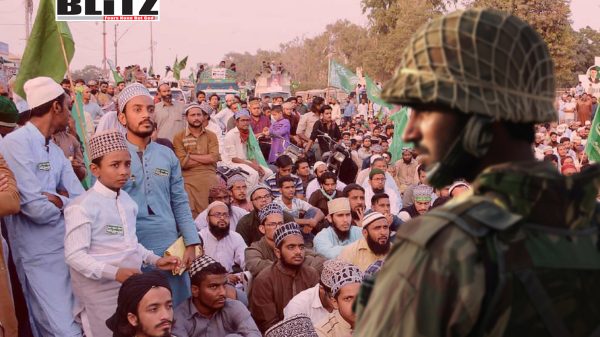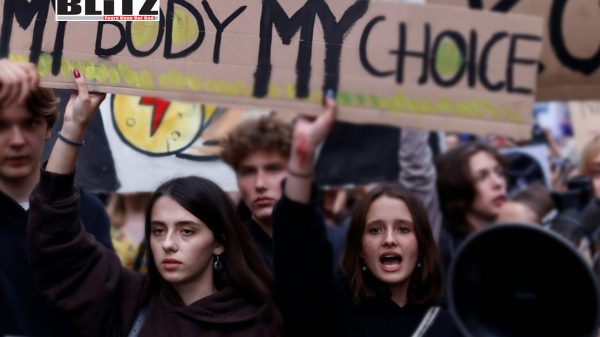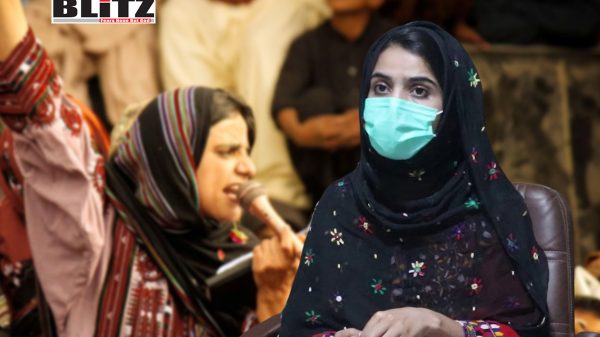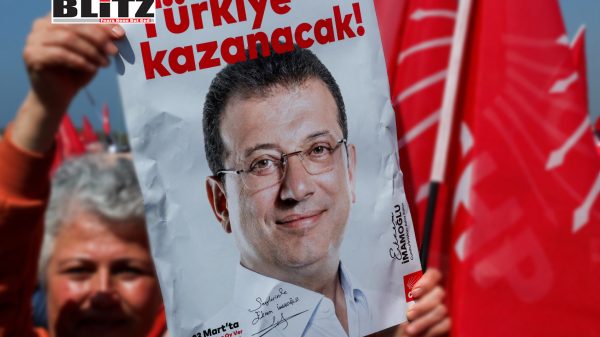Inside the British Army’s child training college: A culture of abuse, neglect and denial
- Update Time : Saturday, November 15, 2025
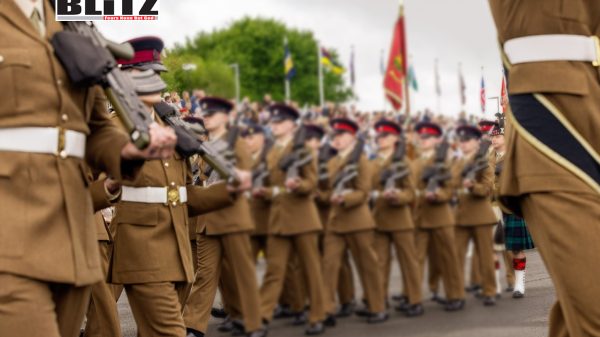
For decades, the British Army has portrayed the Army Foundation College Harrogate (AFC Harrogate) as a gateway to discipline, opportunity and national service for teenagers who join its ranks at 16 and 17. It is the only military institution in Europe that still recruits children-a policy long criticised by rights groups but defended by the Ministry of Defence (MoD) as a pathway to stable employment, structure and personal development.
Yet an extensive 11-month investigation by openDemocracy and the Children Rights International Network (CRIN) reveals a profoundly disturbing reality inside AFC Harrogate. Drawing on Freedom of Information (FOI) disclosures, video evidence, police records, parliamentary questions, and interviews with whistleblowers and parents, the investigation exposes a system marred by violence, sexual abuse, bullying and institutional neglect. What emerges is a shocking picture: Britain’s flagship training centre for teenage recruits has, for years, normalised abuse while operating under a façade of glowing Ofsted ratings and official assurances.
Recruited as children, exposed to systemic harm
Hamish*, who enlisted at 16, entered the college with high hopes-like thousands of young recruits from deprived backgrounds who see the army as a path to stability. But within weeks he witnessed and experienced brutality that would define his six months at AFC Harrogate. Fistfights, beatings, hazing rituals, and bullying became the norm. Junior staff often encouraged teenage recruits to “fight it out” rather than intervening.
He is not alone. Between January 2018 and September 2025, MoD data reveals:
- 474 complaints of physical violence against junior soldiers
- 41 incidents in which staff were the alleged perpetrators
- 176 sexual allegations, including 32 made against staff
- 214 complaints of bullying
- An average of 20 self-harm incidents each year
- 24 crimes recorded by North Yorkshire Police in just the first half of 2025
To teachers, child-protection specialists, and military veterans consulted during the investigation, the sheer scale of abuse is staggering. One educator described the number of violent incidents as “fucking nuts,” noting no mainstream English college would remotely tolerate such rates of harm among 16- and 17-year-olds.
A vulnerable cohort at heightened risk
The young people funnelled into AFC Harrogate are, statistically, highly vulnerable. Recruitment is markedly higher in deprived communities-57% above the rate in wealthier areas. Many arrive with limited educational qualifications; others are seeking escape from difficult personal environments.
- FOI findings show:
- 39 care leavers were part of last year’s intake
- 182 recruits required assessment at the MoD’s community mental health department between 2019 and 2024
Despite these vulnerabilities, teenage recruits are placed under the supervision of around 500 adult staff-most with only a two-week instructor training course before assuming responsibility for children living away from home.
The college offers only limited academic study, largely “Functional Skills” in English and Maths-programmes below GCSE level and insufficient for meaningful educational advancement. Yet promotional materials highlight recreational facilities, “family-like bonds,” and competitive pay, painting an alluring picture that fails to reflect what many recruits endure.
Violence: Normalisation and denial
Comparisons with civilian colleges make the situation even more alarming. Of three “outstanding” Ofsted-rated English colleges reviewed by reporters, two recorded zero violence complaints between 2018 and 2025; the third recorded only one. AFC Harrogate recorded 474.
Hamish described “many fights, beatings in the bathrooms,” and showed footage of sanctioned fights encouraged by instructors-scenes of boys donning boxing gloves and punching each other while staff turned a blind eye. In one video, a recruit doing press-ups during a hazing ritual is whipped repeatedly with a belt.
The violence extends into criminal behaviour. Royal Military Police investigations from 2018–2025 include:
- 105 violent crimes, including
- 58 battery cases
- 22 cases of actual bodily harm, a crime carrying up to seven years imprisonment
North Yorkshire Police recorded 13 violence-related crimes at AFC in the first six months of 2025 alone.
Bullying is also deeply entrenched. The MoD admits to 214 bullying complaints between 2018 and 2025, though the true figure may be higher since many incidents go unreported. Whistleblowers say junior staff often prefer that disputes be resolved through violence. One parent, David*, said his son was targeted by a corporal and subsequently assaulted by roommates, leaving visible marks on his face during a video call.
“My son has totally changed,” he said. “He’s not the same boy. He now needs mental-health support.”
In 2023, a teenager attempted suicide at the college using a gun after experiencing severe bullying, suffering such grave injuries that he had to be airlifted to hospital.
Ambulance records from 2020 onward show 86 call-outs to AFC Harrogate-far exceeding what comparable civilian colleges reported.
Sexual abuse: A persistent and alarming pattern
Sexual crimes at the college are equally disturbing. North Yorkshire Police recorded:
- 9 rapes between July 2022 and August 2023
- 10 sexual offences between January 2024 and July 2025, including rape and sexual assault of minors
These numbers exclude cases handled internally by military courts. In 2024, a junior soldier received a suspended sentence for assault by penetration against a 17-year-old. Several instructors have also been convicted:
- Corporal Irwin: sex with a child while in a position of trust
- Corporal Conway: rape of an adult colleague
- Corporal Bartram: serial sexual exploitation of six underage female recruits
The MoD’s own data confirms 176 sexual allegations between 2018 and mid-2025. Experts stress that sexual trauma has lifelong consequences and that institutions must prioritise safeguarding when working with minors. Yet AFC Harrogate appears incapable-or unwilling-to provide a safe environment.
The illusion of oversight: Ofsted and the IAP
Despite the catalogue of violence, bullying and sexual abuse, Ofsted has routinely rated AFC Harrogate as “outstanding” for welfare. Its 2023/24 inspection-conducted months after a bullied recruit’s suicide attempt and less than a year after a staff member’s conviction for sex crimes-again judged safeguarding to be “deeply embedded.”
Critics argue that inspections are compromised by the MoD’s commercial arrangement with Ofsted, under which the army pays for inspections and is evaluated against different criteria than mainstream colleges. A former junior soldier told reporters: “Ofsted sees the games room, the chaplain, the welfare officer-and boxes get ticked. But if they asked recruits whether the support actually works, they’d hear some hard truths.”
The Independent Advisory Panel (IAP), established after the Deepcut scandal of the 1990s, operates under terms that explicitly prevent it from interfering with army command structures. Its role is limited to observing, “without judgment,” raising questions about its effectiveness as a safeguarding body.
Institutional loyalty over child welfare
Most damning is the suggestion that the MoD prioritises the institution’s reputation over the safety of children under its care. CRIN’s research shows that more than half of soldiers who died by suicide in the past 20 years joined the army before turning 18. Recruits who enlist at 16 or 17 are more than twice as likely to die by suicide as those who join as adults.
Campaigners say the army’s approach demonstrates a systemic failure of care. According to CRIN’s Jim Wyke, teenage recruits-many from deprived backgrounds-enter the army seeking opportunity but are confronted instead with abuse, neglect, and a welfare system that protects the institution, not the child.
When accountability fails, harm grows
Responding to the investigation, Harrogate MP Tom Gordon said: “Cultures of harassment, abuse and misogyny have no place in our Armed Forces.” He has requested a meeting with AFC leadership. Army veteran and author Diane Allen was more blunt: “The MoD keeps insisting these problems are historic and resolved. This investigation shows that is a lie.”
The MoD, for its part, insists that “criminal behaviour has absolutely no place in our Armed Forces,” pointing to new units such as the Victim and Witness Care Unit. Yet the scale of ongoing abuse-combined with ineffective oversight mechanisms and a reluctance to gather or publish key data-suggests deep structural failures.
The human cost
For families like David’s, the consequences are life-altering. His son returned home withdrawn, anxious, and in need of mental-health intervention. For many others, the damage is permanent-or fatal.
As one parent put it: “These are kids. They’re left unsupervised, bullied, assaulted. I’ve got 13-year-old twins, and I would never let them near Harrogate.”
The investigation into AFC Harrogate paints a devastating picture of an institution that fails on the most basic duty of care for the children it recruits. Physical violence, sexual abuse, bullying, and neglect are not isolated incidents-they are systemic, persistent, and facilitated by inadequate oversight and institutional defensiveness.
For a military struggling with recruitment, safeguarding should be paramount. Instead, teenage recruits are subjected to conditions that would be illegal in any civilian educational environment in the UK.
The evidence is clear: Britain’s child soldier policy is not only outdated-it is dangerous. If the Army insists on recruiting minors, it must overhaul its training, welfare structures, oversight mechanisms, and cultural norms. Anything less is a betrayal of the children it claims to serve.
*Names changed to protect identity.


